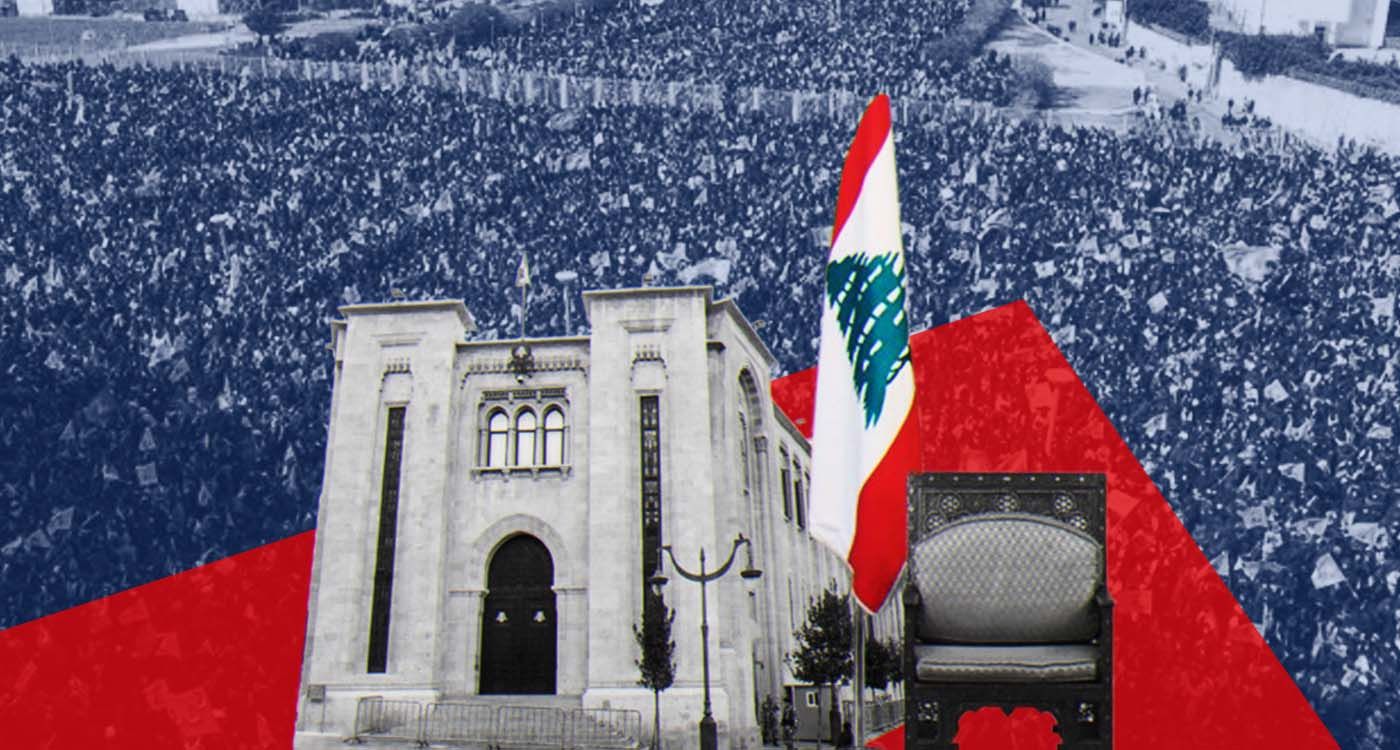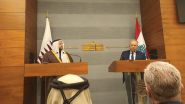
Monitoring the Lebanese political scene is quite disturbing since the hypothetical new political era seems to be bungling. The new incumbents, who came into power incidentally, were unlikely to be co-opted if it were not for the military and political upheaval induced by the Israeli destruction of the operational platforms weaved by the Iranian imperial policy throughout the last two decades.
Unfortunately, Joseph Aoun's election and Nawaf Salam's nomination turned out to be major political blunders. The two actors were initially bound to commit to international security mandates and enforce the UN resolutions (1701, 1559, 1680) after the devastating effects of a reckless war based on strategic miscalculations, ideological fallacies, and the destructive power projections of the Islamic regime in Tehran.
The most puzzling aspect of their behavior is the deliberate denial that marred their approach to the ongoing conflict, distorted their understanding of the strategic landscape, and, more importantly, undermined their sense of political and moral responsibility at a critical juncture, where the future of peace and the viability of the country are at stake. They blinded themselves to the emerging realities and confined themselves to the calculations of oligarchic logrolling, ideological mystification, and partisan networking at a time when Lebanon needed a decisive breakaway from a ruinous legacy of sectarianism, patrimonialization of politics, and outright disregard for constitutional regulation.
The flagrant discrepancies between the principled statements, the declaration of intentions, and the nuts and bolts of politicking were egregious. This demeanor partakes of a common pattern in Lebanese politics whereby words and facts are divorced from the least intellectual and moral consistency. The initial breach of trust started with the carving of zones of influence, division of public spoils, and actualization of power turfs. Whereas constitutional stipulations were relegated to mere instrumentalization.
The framing of the Taef Constitution has planted the seeds of political instrumentation, turf wars, and pliability to foreign power politics as a substitute for legal endorsements and regulations. The likelihood of reforming the political process was vitiated and forestalled at its very origin. Rather than breaking with the devastating consequences of this political endowment, they have managed to rehabilitate it under the trappings of a reformist policy process. The very formation of the cabinet reflected the sturdy political fragmentation and the unwillingness to build a coherent coalition whose goal is to engage the international peace process and initiate urgent reformist undertakings.
Rather than building on the truce platform and benefiting from the international arbitration predicated on the twin pillars of peace restoration and public policy reforms, the newly elected president and the new prime minister were busy accommodating the political agendas of Hezbollah and its allies and solidifying their competing power centers. The executive has failed to create the least political cohesion among its two aisles and to secure the much-needed consensus between its cabinet members. How can such a fractured political landscape operate without the least care about its elementary cohesiveness?
The worst part of this dismal picture is the failure to live up to the international assignments whose success is vital for transitioning to peace and restoring a badly battered national sovereignty and the conditions of working statehood. This state of intentional blindness is what accounts for the failure to implement international resolutions, bring back a modicum of stability, and allow institution building. The overwhelming power politics and their ideological connotations and strategic nexuses were ultimately thwarting the normalization course.
The proposed roundtables with Hezbollah, under the false pretense of a defense strategy, contradict the very principle of the truce and its peacebuilding mission. The failure to disarm, dismantle security zones, challenge the extraterritoriality of Palestinian camps, and address Hezbollah's expanding totalitarian gated communities and diffuse military platforms is no mere coincidence. It’s the result of a tacit political arrangement finalized by both sides of the executive and a deeply entrenched narrative that refuses to engage in peace negotiations with Israel.
The consequences of this deliberate policy and its political and ideological subterfuge are lagging behind international directives. Lebanon is once again set to pay the price—after sixty years of unresolved conflicts—bearing the heavy costs of ideologically driven wars, Arab and Iranian power politics, and the fallacies of Palestinian militancy. This course is coming to an end very soon, but its devastating fallouts are likely to remain with us. The ultimate defeat of the Iranian regime or its dubious change, of course, are the prerequisites for sustainable peace. In addition, the deradicalization of the Shiite political environment and the eradication of its criminal subsidiaries are major cross-generational challenges.
Otherwise, the financial debacle is lingering after seven years of open-ended crises without the least concern for its ravaging consequences. Rather than striving for a consensual arrangement that safeguards the depositor’s investments, lifetime savings, social security funds, and health care insurance, these issues are relegated altogether to the back burner. The social and humanitarian costs of this monumental robbery are blatantly ignored, treated as mere externalities that never challenge the rationale or the fundamental structure of this organized crime.
Rather than considering the urgency to reform the financial system, restructure the banking sector, recapitalize the banks, relaunch the investments, and diversify the economy, the whole reformist plot revolves around oligarchic spoils distributions, targeting the state’s assets without the least concern for redressing the injustices through litigations, confiscation of the robbery derivatives, and the re-establishing of the nexuses between the real and the financial economies.
The political robber barons, Hezbollah and the Shiite mafias, and their counterparts in the financial sector are busy settling scores and upholding their financial interests. Unfortunately, the line between open warfare and peace, and their supposed reformist dividends, is increasingly blurred. The presumed postwar era turns out to be misleading since none of the strategic priorities are addressed based on a common understanding and the search for a common ground to tackle the war aftermaths, the colliding power politics, and the protracted conflicts and their compounded fractures.




Comments